Calling any city a Paris of the East is certainly quite Orientalist, and yet, it is more common than one might think. Baku is one of those cities. In certain ways, its city center did remind me of the architecture I saw back in Paris well over a decade ago. With that being said, in many other ways, it is a completely different town. One of the key differences would be nothing other than the crucial oil industry of Baku, which defines the city, much more than any comparison to a European city. Therefore, to be clearer, Baku is the Petro-Paris of the East, if one wanted to continue the naming scheme. I was lucky enough to visit the Azeri capital back in October of 2024, and in this article, after a brief introduction to the city’s history with petroleum, you can find all the necessary links and tips to plan your own visit to it, if you are up for that.
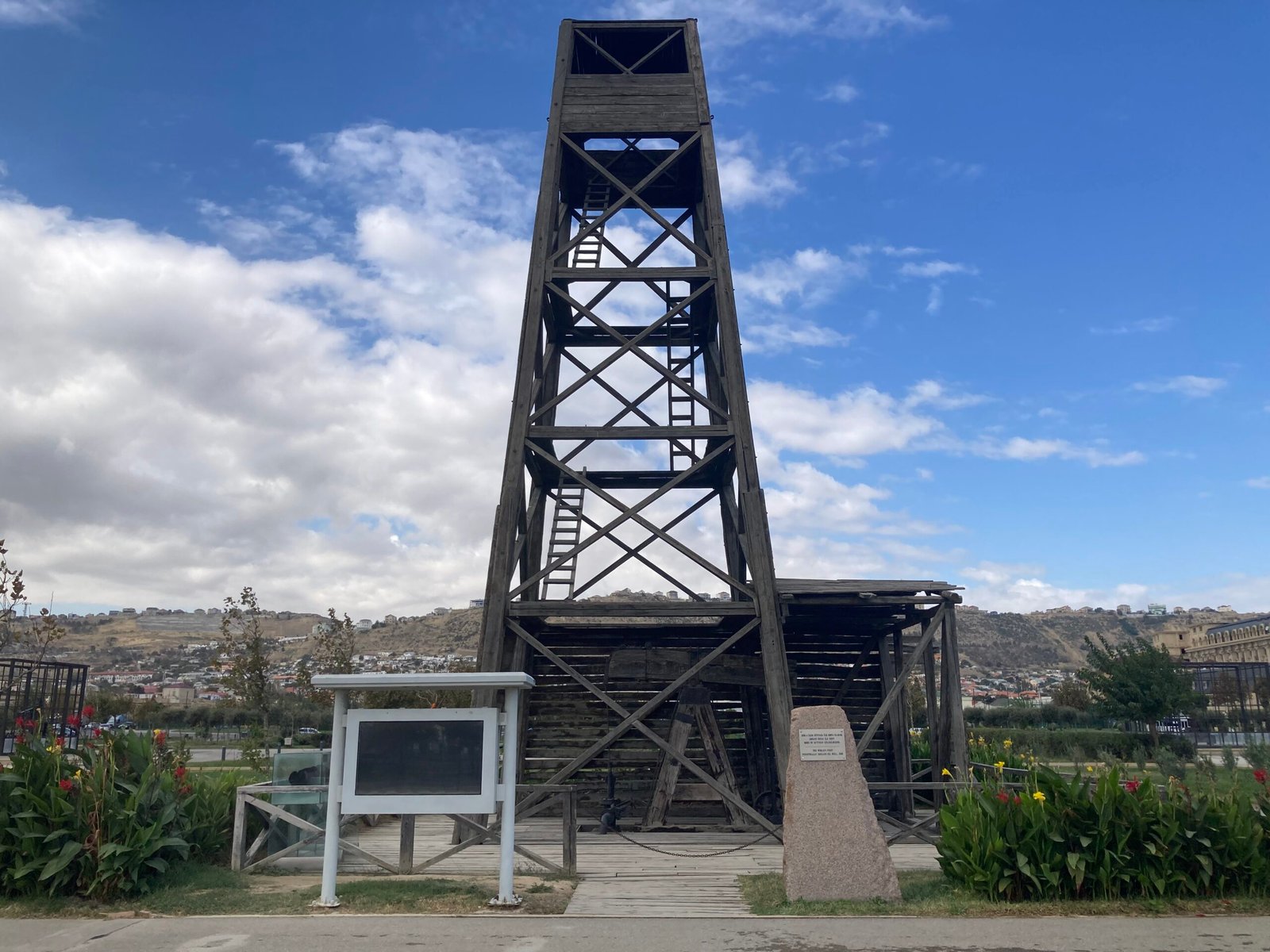
While it was a part of Russian Tsardom, the first industrial oil drill in the entire world started its operations near Baku in 1871, operated by an Ivan Mirzoev, who was, likely to the detriment of the Azeri government today, an ethnic Armenian.
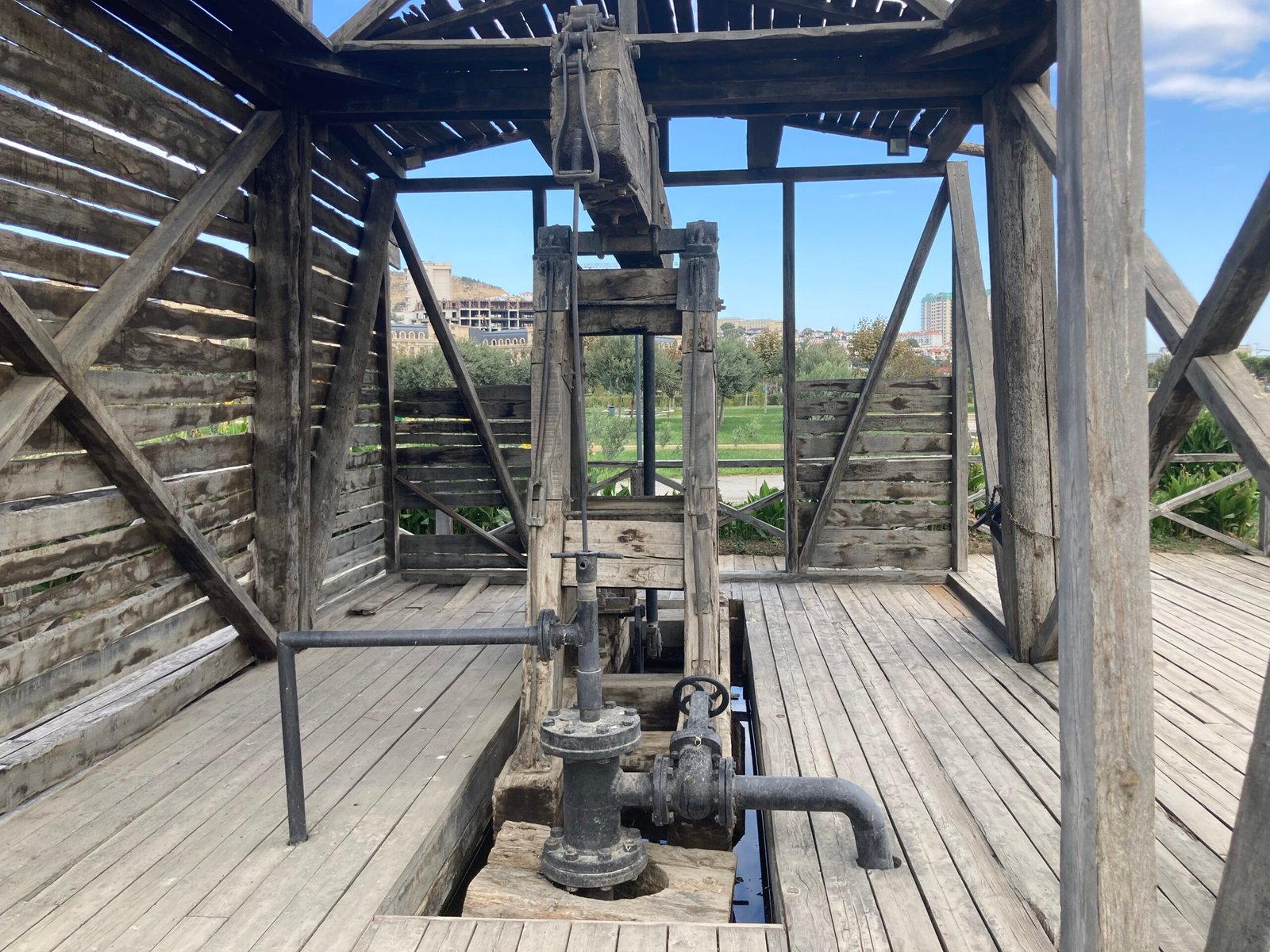
This was a rather humble beginning for what would come to Baku’s way in the following decades. As you can see, it was barely more than a rudimentary pumping system. Since Azeri oil tends to be close to the surface, it was possible to tap into it this early on in the industrial age.
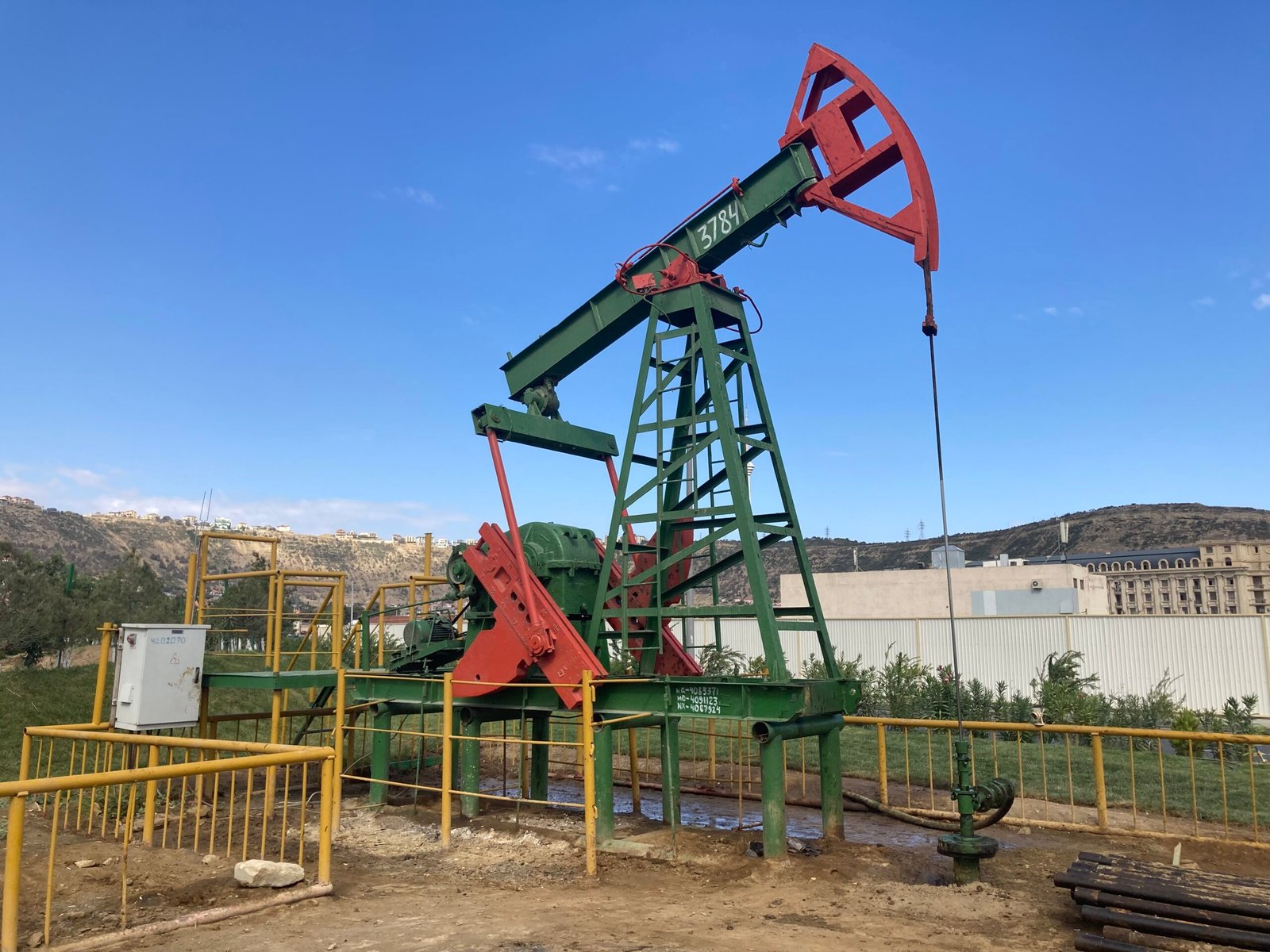
It is quite surprising to see that the neighbouring area has some drills working even today. While oil has been extracted from this location for well over a century now, it continues to be rich in reserves, feeding the industries of today, thanks to much more sophisticated equipment like the one you see above.
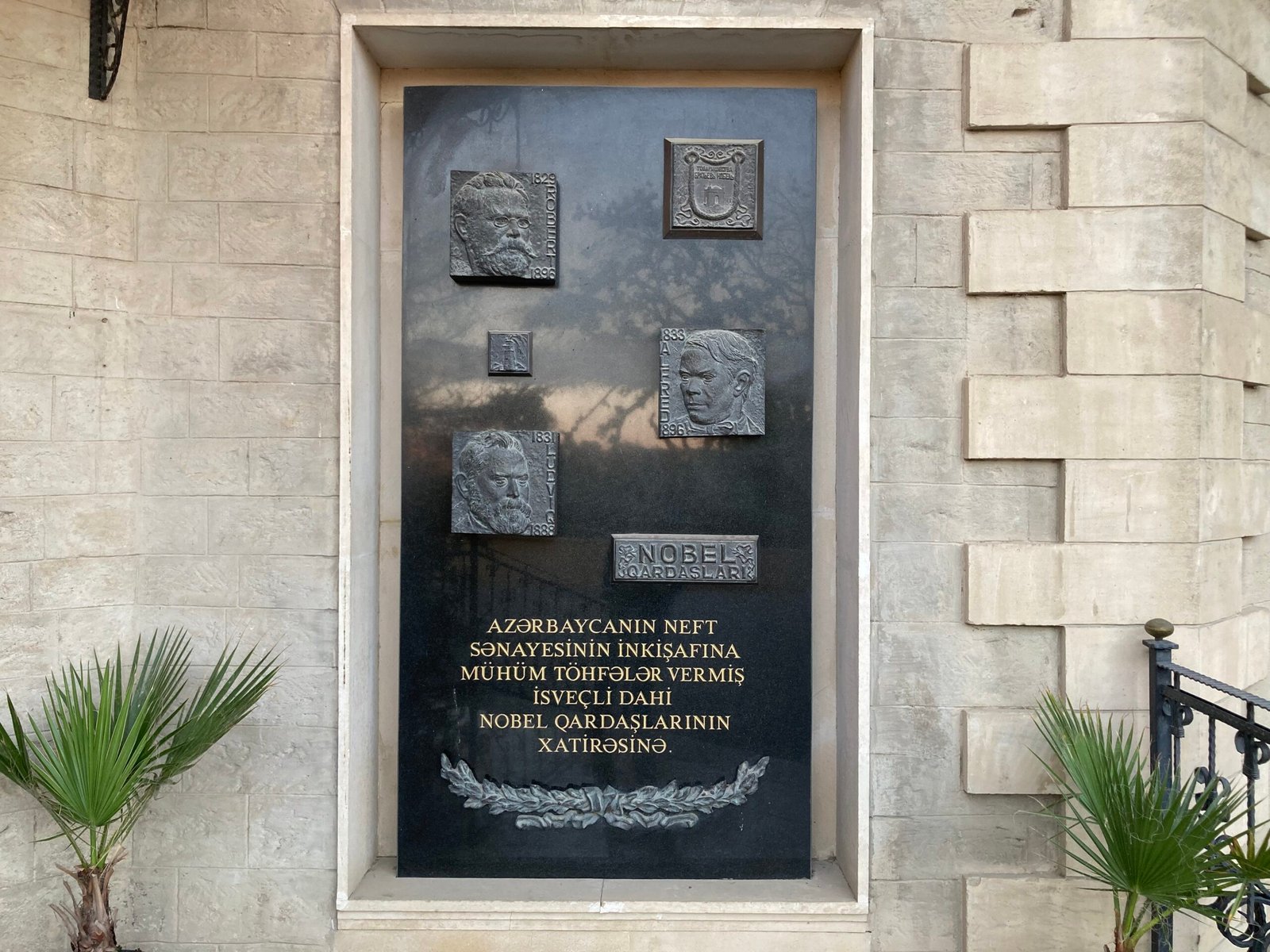
Many famous individuals, like members of the Rothschild family and the Nobel brothers eventually found their way down to Baku, especially around the turn of the 20th century. The estate that once housed the Nobel brothers can be visited today as a museum that tells the tale of Baku’s oil heritage. You will need to inform them of your visit beforehand, and I just do not do that, so I skipped this one, only to take a photo of the exterior.
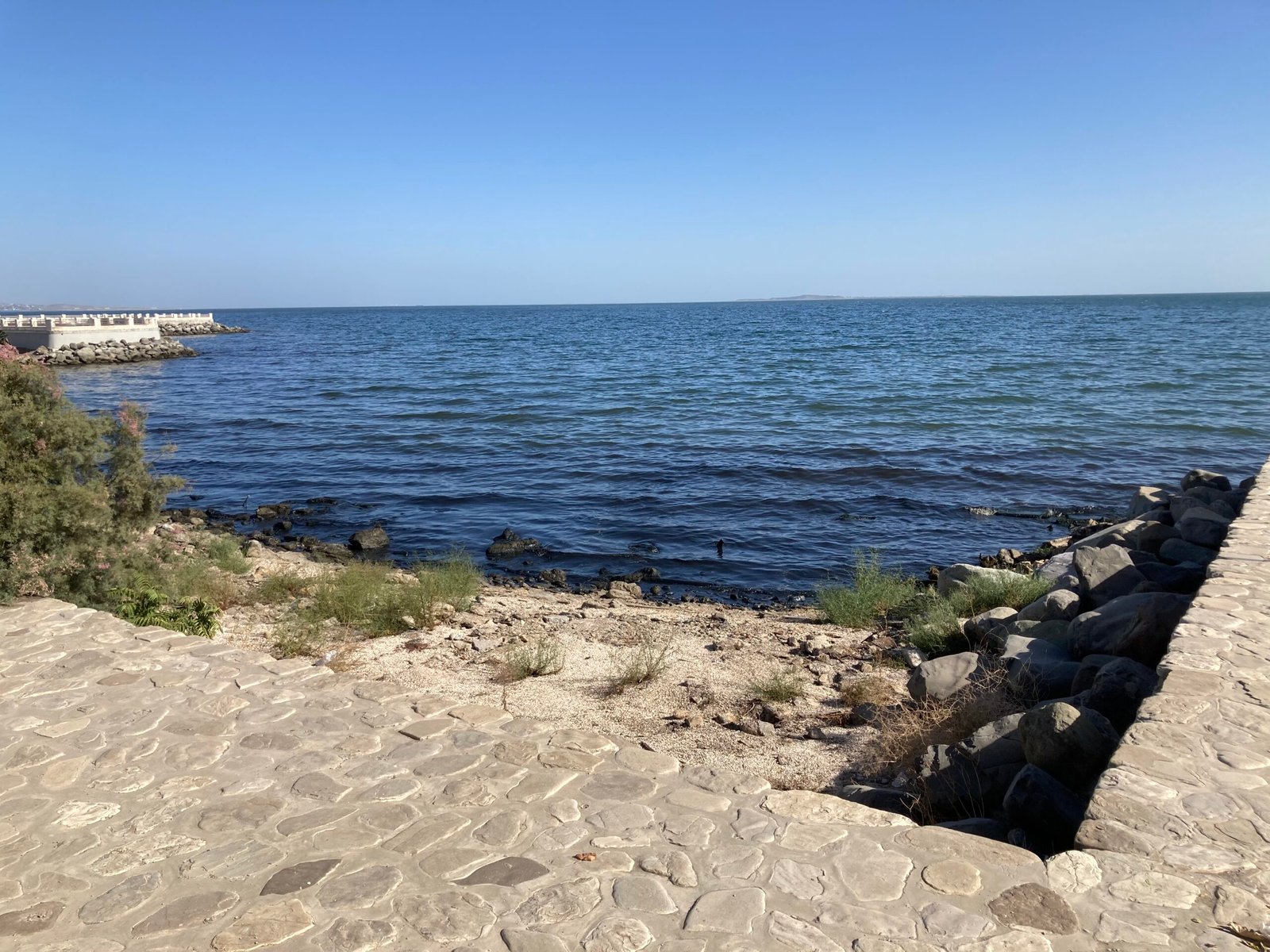
While Azeris today are certainly proud of the role Azeri oil plays in the world today, this gift comes with its downsides as well. As you enjoy a walk around the long waterfront by the Caspian Sea, sometimes you may come across little black beaches like these. This is, of course, a result of oil spillage somewhere near the coast. It does not smell the best, nor does it look the best. Environmental issues are, certainly, a part of everyday life in Baku today.
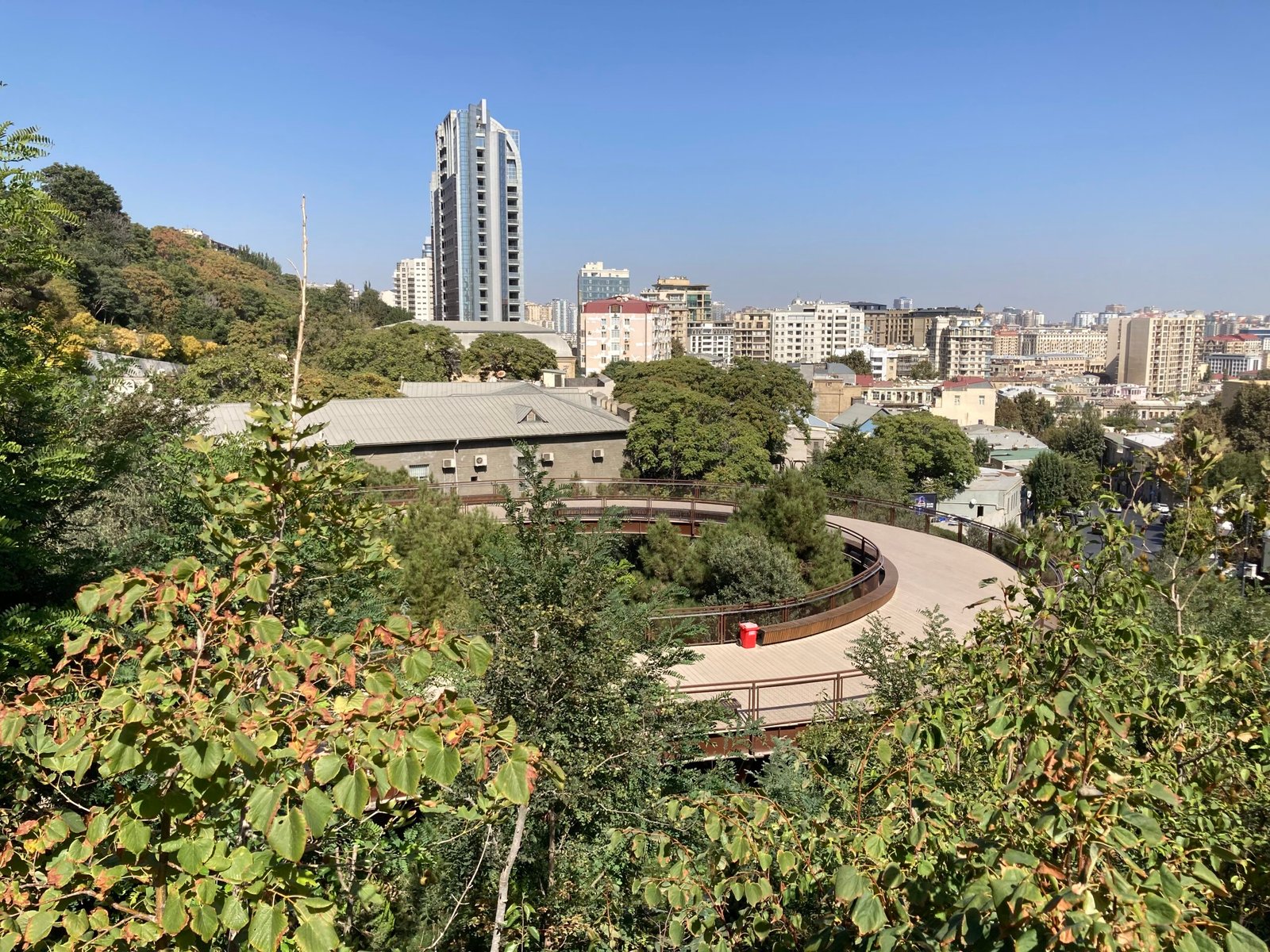
With that being said, Baku is hardly a hellish landscape you should avoid at all costs. All that oil money did some good for the city as well. For example, there are plenty of parks like this Chemberekend Park all around town, and the whole city is rather well groomed for the most part. As long as you stay away from the drills and sometimes the Caspian Sea itself, you should be fine.
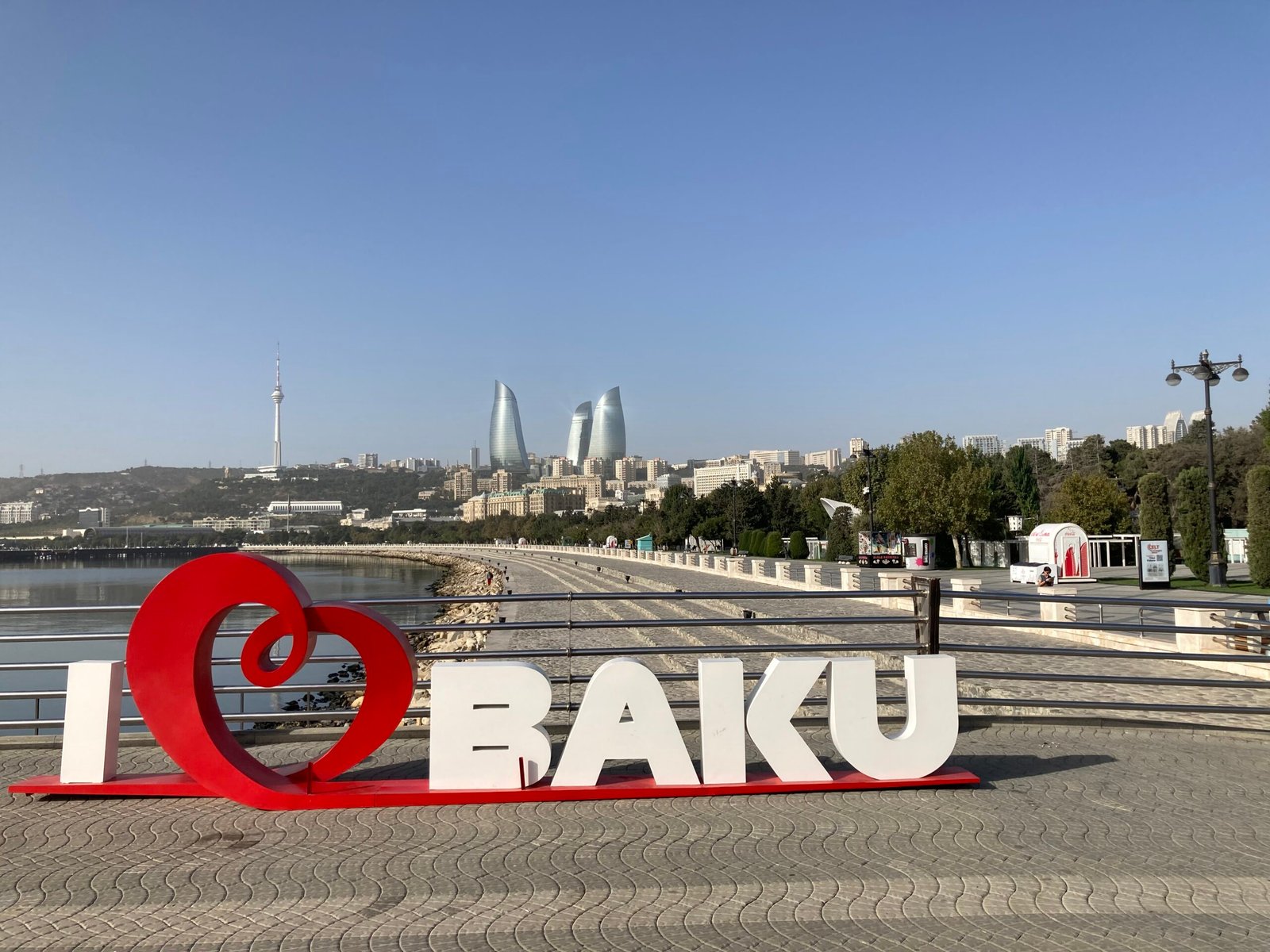
Well, this was enough chit chat about just one aspect of Baku, its oil industry. Thankfully, I already wrote a lot more about Baku, covering issues ranging from its magnificent Old City to the delicious local cuisine. To find out more about these, feel free to enjoy the following links to your heart’s content:
- Baku’s Old Town: Surreal yet Real
- Soviet Baku: Tsarist Boomtown to Socialist Boomtown
- Aliyevs and Azerbaijan: Life in Baku Today
- Qobustan: The Land of Fire (and Mud)
- The Artsy Azerbaijan: Baku’s Best Art Museums
- Getting to Know Azerbaijan: Baku’s Finest Museums
- Azeri Food in Baku: The Good and the Bad
- Foreign Cuisines in Baku: A Quick Guide
A Quick Note on Prices
Baku is not an expensive city, nor is it necessarily cheap. There are a few things to note about it that should make it easier and cheaper for you to plan your own visit to the Petro-Paris of the East. Here are my top tips regarding financing your trip to Baku, in no particular order:
- The Azeri Manat, or AZN, is pegged to the USD at a rate of 1,7 AZN per 1 USD. You can find exchange offices buying your USD for around 1,65 to 1,69 AZN easily, and unless you want to exchange a lot of money, in all honesty, any of these rates should do the trick.
- Azerbaijan is trying to become a hot spot for tourists, but it does not have a bustling tourism industry today. This causes a lot of issues for all of its wannabe visitors. First of all, it is not easy to find decent affordable stays. I stayed at the lovely Freestyle Hostel ran by an excellent local gentleman, Orhan. I paid around 9 USD for a night in a shared room with three others, and it was worth every penny. However, I barely had any other option to begin with. Few other, similar priced establishments had plenty of negative comments, and even a very old and dirty looking somewhat central apartment started from 30 USD and onwards a night. Compared to most other post-Soviet cities, Baku is certainly not cheap for staying a short time.
- There is another issue with the not so bustling tourism industry of Baku. You will realize that a lot of locals, though by no means all of them, can take advantage of your naivety regarding local prices if you are not careful. To my surprise, a lot of spots, especially in the middle of the Old Town, did not have clear cut prices for most items on sale. Since some Azeris did not think that I was Turkish and talked freely in Azeri, which I can understand somewhat, I noticed just how different prices for the same good could be when different visitors, time and time again. I myself had to pay anywhere from 2 to 4 AZN for the same type of magnets, depending on where I got them from, and if the owner gave me a “discount” or not. I was also quoted anywhere from 20 to 70 AZN for a kilogram of local baklava, which all tasted very similar to me at that time. In short, negotiate well, and stick to places with clearly visible prices if possible.
- The issue of ripping off tourists is also rampant in some touristic restaurants. This is the same all around the world but do know that you can be full on very good food for as little as 5 USD in Baku or pay as much as 20 USD for a mediocre meal. To make sure you visit only the finest of places, feel free to check out the links I provided above.
- As a petroleum rich country, taxis and transportation in general is cheap in Baku. Bolt and Yango are both useful to get you around town on a budget, and a metro or bus ticket costs only 0,50 AZN.
- I have been told plenty of times by locals that the best parts of Azerbaijan are outside of Baku, and that while they are easier on the eyes and the soul, they are also easier on the budget. Assuming that this is the case, for an even cheaper Azeri holiday, you may consider making your itinerary include destinations across the country. I was simply too tired to do that myself when I was there as this was a short break in the middle of an extremely busy semester.
With all this being said, I do hope that you can make the best of your time in Baku! I also hope that you can perhaps visit the neighbouring Georgia as well, if you have not had the chance so far. To find out more about my most recent travel to that green jewel of the Caucasus, do follow THIS link!
